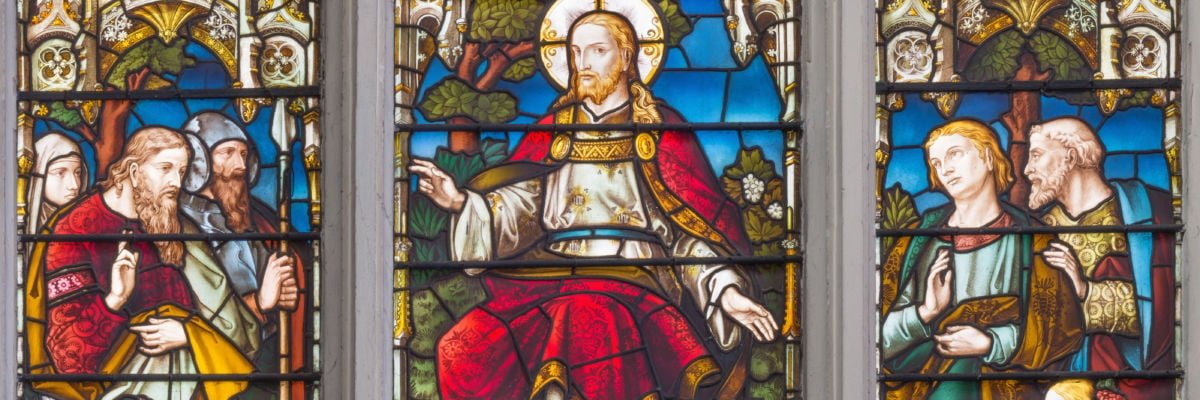
Question:
Answer:
One needs to read John 6:62 and 6:63 in the larger context of the Bread of Life discourse of John 6, lest they make erroneous exegetical inferences.
Jesus emphatically tells his first disciples that they must eat his body and drink his blood to attain eternal life (John 6:53-58). Here Jesus first reveals the preeminent sacrament, the Eucharist, because it makes present his one Sacrifice of Calvary that culminated in everlasting glory in the heavenly sanctuary, and which his disciples participate in and offer new at every Mass, and therein also partake of him as the New Covenant Passover Lamb in Holy Communion.
His disciples understand Jesus as speaking literally, not figuratively, and so they understandably say, “This is a hard saying; who can listen to it?” (John 6:60).
In response, Jesus doesn’t convey that they misunderstand him. Rather, he makes a further claim, that he is not simply the Messiah, but God himself, presenting himself as a glorious divine figure of which the prophet Daniel spoke: “Do you take offense at this? Then what if you were to see the Son of man ascending where he was before?” (John 6:61-62; see Dan. 7). Jesus is conveying that the eternal-life-giving nature of the Eucharist is possible precisely because he is God.
In John 6:63, Jesus reaffirms this point: “It is the spirit that gives life, the flesh is of no avail; the words that I have spoken to you are spirit and life” (John 6:63). Here Jesus implicitly reaffirms his teaching on the Eucharist, conveying that his human nature on its own could not provide eternal life, but united with his divine person—body, blood, soul and divinity—it can.
For more on the Bread of Life Discourse, please see our article on the Year B Sunday Mass readings that proclaim John 6 and related Old Testament passage. In addition, see our article that illustrates the early Church believed in the Real Presence of the Eucharist.



